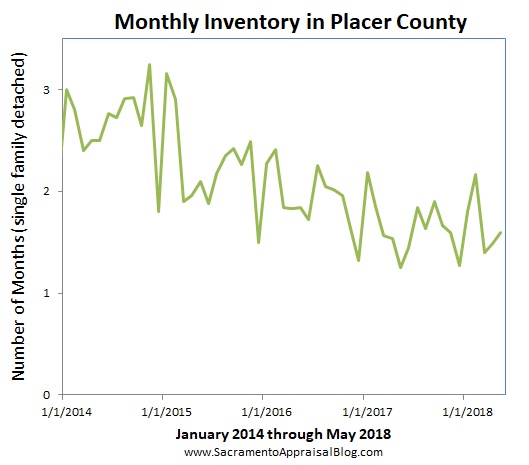Storage container units are all the rage on HGTV, but they’re starting to pop up in real life too. So let’s talk about them. Today I have an interview with James Roberts who handles design and engineering at TAYNR, a container home builder in Sacramento. I hope this will be insightful and interesting. Anything to add? Let’s talk in the comments.

Ryan: What got you into the storage container business?
James: I first became aware of “shipping containers” when I was a Signalman in the US NAVY. Seeing them in different commercial ports was common. After the NAVY I moved to Miami Beach where I met Sujan (Project Manager at TAYNR), and we would see shipping containers on large cargo ships, cruising in and out of the Miami Port all the time. But Denmark was the first container build I ever saw. And then London had container condos and a shopping center. Thailand, Laos, Korea Japan, Mexico, Costa Rica, Brazil all have many small pop-up businesses, single family homes and commercial buildings. During recent visits to China and Hong Kong, I saw new construction sites with 100s of containers modified for worker housing.

Ryan: What type of buildings can you make out of containers?
James: The possibilities are endless. The ISBU (Intermodal Steel Building Unit), the shipping container, is manufactured to carry heavy cargo of all kinds, to be stacked, and withstand extreme weather conditions while being transported across the seas. With that said, they are incredibly strong, and if modified correctly, they can be used for an endless amount of structures. Australia has been using containers for housing and commercial structures for 40+ years. America has recently (+/-10 years) started to use this building method for single family and multi-family homes, commercial store fronts, popup food stations, business marketing structures, etc. The worker housing units would be an excellent source for all means for temporary housing in the US. Emergency, migrant, farm, homeless, camping, etc. The list can go on.

Ryan: What is the maximum number on stories you can do?
James: They are manufactured to stack on top with the weight bearing on the four corner posts. It is common to see them free-standing 6 boxes high at the port. This is without reinforcement or anything securing them together. You can imagine that with additional engineering and structural support, this could easily be doubled, possibly tripled.

Ryan: Tell me about the accessory unit you built in Oak Park (the blue unit below).
James: Matt and Jamie Leonardo contacted me in late 2016. They bought their Oak Park home a few years before and had worked up some equity. Originally there was a non-permitted home along the back alley way that had to be torn down in order for their loan to be approved. Replacing this structure for a revenue generating dwelling was pretty much in the plan from the beginning. I do not remember where/why they decided to build with a shipping container, but we met, discussed a plan and moved forward. This home will actually be showcased on an upcoming episode of You Live In What, premiering June 29th at 9 pm on Great American Country Network (GAC), an HGTV affiliate.

Ryan: Do units get extra hot on the inside because of the steel exterior?
James: No, our units are meant to perform extremely efficient by design. By nature, corten steel will absorb the heat from the sun. This is a factor that is taken into consideration from the beginning and we have many different ways to address this. For instance, the Oak Park container home is insulated on the inside and has reflective paint on the outside. Also, a weather barrier and facade were installed on the exterior of the container to allow for a 6?+ thermal break. The roof has a 3:12 sloped standing seam roof with 3’6? eves to provide additional shade along with the insulation and weather barrier laid out inside the roofline, and it has 2 mini-split for heating and air.

Ryan: What type of units do you find most clients are asking for these days?
James: Our highest demand for individuals is an ADU (Accessory Dwelling Unit) that can be installed in existing backyards for in-law quarters, guest homes, or as a rental unit to capture additional income. The TAYNR models are designed to be “building blocks” offering both 20′ and 40′ multi-block models. 1, 2 & 3 bedroom units with 1 or 2 baths.

Ryan: How long does it take to install an ADU?
James: Foundations can be installed in 1 day, and installation of the ADU is typically 5-10 business days depending in the model size.

Ryan: Is it fairly easy to get a storage container unit permitted?
James: “Easy” is absolutely not how would describe it. However, because we have our pre-designed models and engineering understood, this does simplify our process.

Ryan: Do you know if there is a limit to how many units can be added in a backyard?
James: Any residential lot in California can have one ADU as long as the property setbacks and design review conditions can be met. So far the only issue I have run into is physical access, which TAYNR now offers an alternative modular product that can usually meet this conflict.

Ryan: Have you found some areas not willing to allow containers because of design restrictions?
James: Usually this is due to the City/County design review. Some areas require the ADU be cohesive with the existing structure. As long as budget allows, this is not an issue because we can design a facade to satisfy this point.

Ryan: So far I’m not aware of any stand-alone single family container units in Sacramento. Have you heard about any yet?
James: There currently is not a stand-alone unit in Sacramento. Stay tuned… we have one in the works.

Ryan: What are the costs like for a storage container accessory unit?
James: Models and pricing are listed on our website (here).
Ryan: Are permit fees any different for containers compared to stick-built homes?
James: No, they are not. Our builds are required to meet the same building codes and are permitted the same as a traditional build.

Ryan: Anything else you want to add?
James: One of the biggest misconceptions is that building with containers is “cheap”. This is not the case. Although there are absolute savings if the build process is followed properly. Meaning, the onsite work should be performed while the ADU is being built in the factory, so the overall start-to-finish construction is significantly reduced, saving you a lot in labor cost.

Ryan: Thanks for doing the interview. You killed it. Everyone, please check out TAYNR’s website. All photos in this post are TAYNR projects (images are property of TAYNR).
CLOSING APPRAISAL THOUGHTS: Container homes are an emerging trend in the market, so it’s important to stay in tune with this phenomenon. I’m excited to hear TAYNR is building a stand-alone home too because that’s not something the market has seen yet. It’s worth noting one of the struggles with stand-alone container homes is the potential of financing hurdles: 1) The unit might not be large enough in size in the eyes of the lender; and 2) A lender might ask an appraiser to use container comps to show the market accepts this type of property. Well, right now there aren’t any comps (yet). But the market is craving alternative products like this, so lenders over time will hopefully adapt to this emerging trend.
Questions: What do you think of container homes? Any insight or stories to share? Loan officers, any tips on financing? I’d love to hear your take.
If you liked this post, subscribe by email (or RSS). Thanks for being here.


 Normal seasonal slowing: Right now the market is slowing, and some are saying, “It’s starting to turn. Pop. The Bubble is happening!!!” Here’s the thing though. Markets tend to have a seasonal cycle where things are hot and then they cool off. When the market begins to
Normal seasonal slowing: Right now the market is slowing, and some are saying, “It’s starting to turn. Pop. The Bubble is happening!!!” Here’s the thing though. Markets tend to have a seasonal cycle where things are hot and then they cool off. When the market begins to 
 We saw what we would expect to see last month. It felt like a normal May. Well, actually it was the strongest May of sales volume since 2013. Prices ticked up again, it took three less days to sell, and inventory remained sparse. Overall the stats are glowing, but it’s important to recognize the market is starting to slow for the season. We are seeing way more listings hitting the market, and this is transferring some power from sellers to buyers. We are also seeing more price reductions. In a few months we will likely see this slowness in the stats, but for now check out some glowing numbers below.
We saw what we would expect to see last month. It felt like a normal May. Well, actually it was the strongest May of sales volume since 2013. Prices ticked up again, it took three less days to sell, and inventory remained sparse. Overall the stats are glowing, but it’s important to recognize the market is starting to slow for the season. We are seeing way more listings hitting the market, and this is transferring some power from sellers to buyers. We are also seeing more price reductions. In a few months we will likely see this slowness in the stats, but for now check out some glowing numbers below.


























